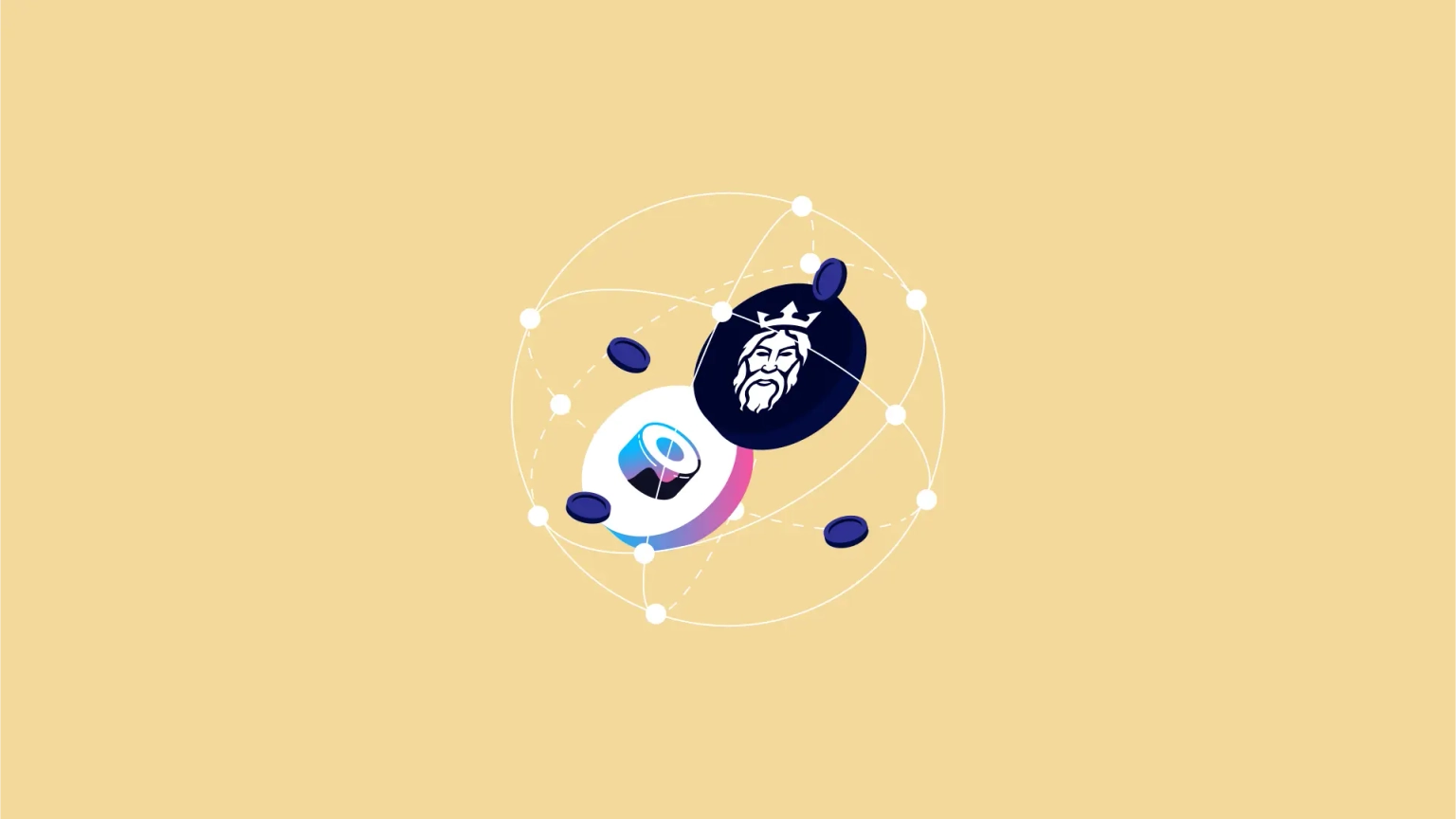
Collaboration between Neptune Mutual and SushiSwap
Explore Neptune Mutual's ongoing collaboration with SushiSwap offering several benefits.
Youtube Video
Playing the video that you've selected below in an iframe

Understand the Web3 gaming realm, associated challenges, and how to make it sustainable.
Web3 gaming, a revolutionary entity in the digital entertainment sector, is rapidly reshaping how we perceive and interact with virtual worlds. It leverages blockchain technology, NFTs, and Decentralized Finance (DeFi) to create gaming ecosystems that are not just immersive but also empower players with fairness, ownership of in-game assets, and a voice in the game's evolution.
The surge in popularity of Web3 gaming is undeniable. With its promise of player empowerment, rewards, incentives, and fair play, it has captivated a growing audience, leading to a significant expansion in both the number and diversity of games available. This growth is not just in player numbers but also in the economic activity and innovation within the space.
While offering numerous opportunities, the space also poses challenges. The gas consumption of blockchain networks, the economic stability of in-game ecosystems, and the associated risks of these new virtual environments are under scrutiny. This leads to the question: will the Web3 gaming space continue to thrive?
This article aims to delve deep into the realm of Web3 gaming, shedding light on its current landscape and how projects can prepare for its longevity. We will be providing a comprehensive exploration of the challenges faced, the strategies for overcoming these hurdles, and the future prospects of creating a sustainable, inclusive, and prosperous Web3 gaming ecosystem.
Blockchain technology integration is driving the development of Web3 gaming and ensuring decentralization, security, transparency, and user control. These games, often referred to as GameFi, are fostering a gaming environment that is fair, open, and community-driven. Unlike traditional gaming, where control often resides with a central authority, Web3 gaming ensures that the rules and outcomes of the games are verifiable by all participants, effectively eliminating the possibility of cheating or manipulation.
One of the most compelling features of Web3 gaming is the complete ownership and control it offers players over their in-game assets. Whether it’s the characters, items, or tokens, players could have the liberty to trade, sell, or even craft new assets using smart contracts. Additionally, many Web3 games incorporate their own tokens or cryptocurrencies, further expanding the economic landscape within and beyond the gaming environment.
Web3 gaming also introduces a fair battleground for all players. It dismantles the pay-to-win barriers and unfair matchmaking systems prevalent in many traditional games. So, every player, irrespective of their skill level or financial investment, has an equal opportunity to succeed.
The community aspect of Web3 gaming is another cornerstone that sets it apart. Web3 games thrive on the active participation and collaboration of their user base. Players are not just consumers but also contributors who can influence the game's development through governance, propose new features, or form alliances within the game to achieve collective objectives.
All these benefits and features of Web3 gaming undeniably set the stage for a future where gaming transcends mere entertainment. The promise of fair play, economic empowerment, and community-driven development could fuel the longevity of this innovative landscape. However, for this potential to be fully realized, addressing the multifaceted challenges of sustainability within this emerging domain is crucial.
While the potential of this new gaming paradigm is vast, achieving a sustainable model requires navigating through complex issues and making critical trade-offs.
One of the most significant challenges is the energy consumption of blockchain networks. The security and decentralization that blockchain provides come at the cost of significant gas fees. The complexity of using blockchain technology, including managing wallets and understanding transaction fees (gas), can be a barrier for new users.
Another roadblock is the economic volatility associated with the cryptocurrency and NFT markets, which are integral to Web3 gaming. The value of in-game assets can be highly speculative and subject to market fluctuations, posing risks to the stability of in-game economies.
Similarly, security threats are always there. Smart contracts and blockchain networks are susceptible to security vulnerabilities. Exploits and hacks can lead to significant losses for players and diminish trust in the ecosystem.
Besides, ensuring fair play, inclusivity, and a safe gaming environment in a decentralized setting is inherently complex. Blockchain can offer transparency and fairness in transactions and gameplay. But ensuring fair governance where players are spread across the globe, each with their own set of norms and expectations, is a daunting task.
Moreover, the pursuit of sustainability strategies often involves trade-offs that must be carefully considered. For instance, transitioning to more energy-efficient blockchain networks or layer 2 solutions may improve environmental sustainability but could also lead to trade-offs in terms of network security or the degree of decentralization. Similarly, efforts to stabilize in-game economies might require mechanisms that could be perceived as limiting the open and speculative nature that attracts many players to Web3 gaming in the first place.
Here are some of the steps and strategies for the sustainability of Web3 gaming:
Transitioning to more energy-efficient blockchain protocols and consensus mechanisms, such as Proof of Stake (PoS), can significantly reduce gas fees.
In addition, implementing layer 2 solutions or sidechains can offload transactions and computations from the main blockchain, thereby reducing congestion and gas consumption. These technologies allow for scaling the network while maintaining security and decentralization, contributing to a more sustainable infrastructure.
Creating mechanisms that prevent hyperinflation of in-game assets and ensure long-term economic stability is important for developing sustainable in-game economies. Designing tokenomics that balance supply and demand and creating sinks for in-game currency to maintain its value over time are the keys.
In addition, ensuring a fair and equitable distribution of in-game assets and rewards is crucial for sustaining player interest and engagement. Mechanisms that reward players based on their contribution, skill, and participation can create a more inclusive and balanced gaming environment.
Decentralized Autonomous Organizations (DAOs) play a pivotal role in community governance, allowing players to participate in decision-making processes. This decentralized approach ensures that the game evolves in a direction that aligns with the interests and values of the community.
Ensuring the privacy and security of players' data and assets is paramount in Web3 gaming. Robust encryption, secure wallet integration, and privacy-preserving technologies are essential to protect users from breaches and data leaks.
Regular smart contract audits, community vigilance, and a thorough understanding of the underlying technologies and associated risks are crucial for users to surf the Web3 gaming space safely. Developers and players alike should be proactive in identifying and addressing vulnerabilities.
Despite robust security measures, there's always a risk of unforeseen exploits or hacks. DeFi insurance can play a crucial role in protecting users' assets against such incidents. By offering insurance options, Web3 gaming platforms can provide an additional layer of security, ensuring that players' investments are safeguarded.
When it comes to the security and protection of users’ investments in the DeFi space, Neptune Mutual is a prominent platform offering insurance coverage solutions. We are a DeFi insurance protocol, operating on a parametric model.
Whatever threats are present in the DeFi ecosystem, we are geared up to provide a safety net for the users by protecting their funds.
At Neptune Mutual, we offer a marketplace where projects can create cover pools for their products. If you have a Web3 gaming project, you can create a pool in our marketplace to ease the purchase of coverage for your users and protect their in-game assets. Reach us through our contact page so that we can help you create the cover pools and set parameters as per your requirements.
As an individual involved in and invested in Web3 gaming, ask your project what security measures they have adopted. The strongest of the projects in DeFi have failed to become resilient against the DeFi threats and disappear after a while. So, you might want to urge your Web3 gaming platforms to create cover pools in the Neptune Mutual Marketplace and provide the security you deserve.
To know more about Neptune Mutual, follow us on X (Twitter) and join our Discord chat.